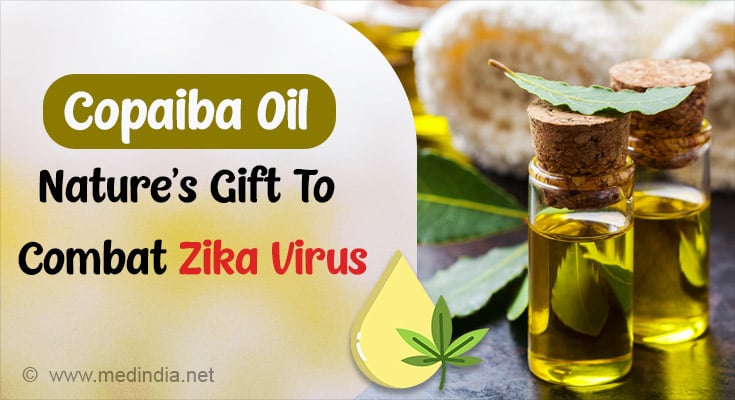Nonetheless, a new study suggests that Copaiba oil from tropical trees may offer an antiviral solution for ZIKV (
).
Zika fever, caused by Zika virus is a mosquito-borne disease, which is transmitted by
.
A ZIKV infection can cause mild symptoms like fever, rash, headache, joint discomfort, conjunctivitis (red eyes), and muscle soreness. It can also result in neurological issues such as Guillain-Barre syndrome in adults and congenital syndrome in young children, which include visual, auditory, and neuro-psychomotor alterations
What is Capoiba Oil?
Copaiba oil, derived from the resin of the Copaifera tree – Copaifera officinalis has been traditionally used by indigenous communities of Amazon for centuries. This essential oil has has gained popularity for its various health and wellness benefits such as anti-inflammatory, antibacterial, and analgesic properties.
Advertisement
Copaiba oil is applied topically by many people to treat skin problems, joint pain, and muscle aches. It is also a popular option for skincare due to its antibacterial qualities, which help to treat acne and improve the general health of the skin. Because of its grounding and relaxing qualities, copaiba oil is often utilized in aromatherapy.
Capoiba Oil’s Antiviral Effects on Zika Virus
In a recent study from So Paulo State University in Brazil, in-vitro tests confirm the antiviral effects of a nanoemulsion made from the copaiba oil. The nanoemulsion contained capaibo oil, egg lecithin, and water in appropriate proportions to trigger an anti-viral response.
The highest non-cytotoxic concentration of 180 μg/mL of the nanoemulsion was infiltrated on a cultured ZIKV-affected tissue which exhibited 80% viral RNA inhibition and was stable over the 60 days. This demonstrated the effectiveness of the nanoemulsion’s structure and its association with the oil.
Additionally, a dose-dependence study was carried out by the researchers to determine whether a larger concentration would result in greater viral inhibition, which was proven successful.
The nanoformulations demonstrated minimal cytotoxicity and antiviral effectiveness against ZIKV, indicating their potential to emerge as a novel therapeutic strategy to impede Zika virus infection.
In summary, while the use of copaiba oil may offer some promise for treating ZIKV infections, prevention remains the effective strategy to curb the disease.
Disclaimer: The content on this page is meant to be an informative resource and is not meant to replace advice from a medical professional. It is always best to consult a healthcare provider with any concerns.
Reference :
- Synthesis of copaiba (Copaifera officinalis) oil nanoemulsion and the potential against Zika virus: An in vitro study – (https:journals.plos.org/plosone/article?id=10.1371/journal.pone.0283817)
Source: Medindia



